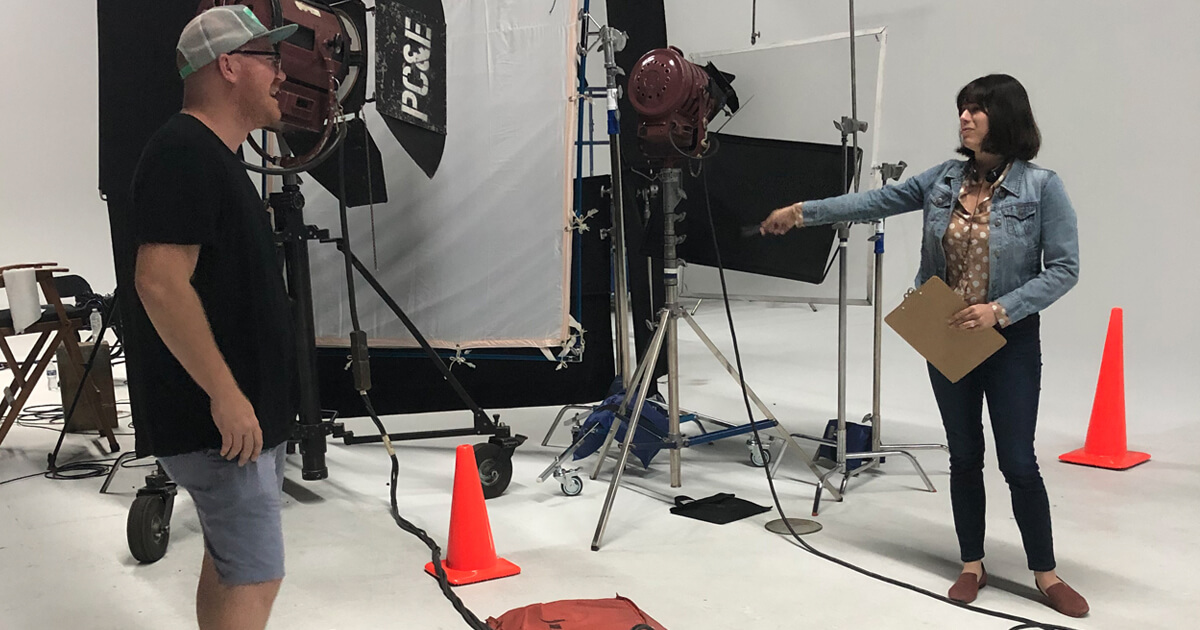Essential tips for first-time planners using event production charlotte
How Event Production Works: A Comprehensive Check Out the Refine
Event production is a complicated and organized process that needs cautious preparation and execution. It starts with developing clear goals and understanding the target market. Each step, from budgeting to venue choice, plays a crucial function in ensuring success. As the procedure unravels, various aspects should align perfectly. The nuances of this elaborate procedure typically go unnoticed. What are the vital stages that contribute to an unforgettable event?

The Initial Drawing Board
When starting on event production, mindful planning is crucial to ensure a successful result. The preliminary drawing board acts as the structure for all succeeding initiatives. During this phase, event producers should define the event's purpose and purposes plainly. Determining the target audience helps tailor the experience and messaging, assuring relevance and engagement.Producers have to additionally think about the event style, whether it be in-person, virtual, or crossbreed, as this will certainly affect different logistical elements. Picking an appropriate date and place is essential, as it affects availability and availability.Furthermore, putting together a reputable team is basic for splitting responsibilities and simplifying interaction. Establishing a timeline with landmarks assurances all tasks are completed on schedule. This phase involves detailed study, consisting of determining possible difficulties and devising methods to mitigate threats. Ultimately, a well-structured first planning phase establishes the tone for a successful event production journey.

Budgeting and Source Allotment
In event production, efficient budgeting and source allocation are important for success - event production charlotte. Developing financial specifications sets the foundation for all subsequent choices, while source circulation techniques ensure that every element of the event is sufficiently sustained. With each other, these elements aid maintain control over expenditures and optimize making use of readily available sources
Developing Financial Parameters
Developing financial parameters is essential to the success of any kind of event production, as it establishes the structure for effective budgeting and resource allocation. This process begins with defining the overall budget plan, which encompasses all aspects of the event, including venue costs, event catering, and advertising. By determining readily available funds, event organizers can focus on expenditures and assign resources accordingly. Additionally, it is vital to conduct detailed market study to expect prospective prices and recognize financing sources, such as sponsorships or ticket sales. Establishing clear economic specifications likewise aids in threat management, permitting organizers to set aside backup funds for unforeseen expenses. Eventually, a well-defined budget works as a roadmap, directing the event production team in the direction of accomplishing their goals while keeping economic control.
Resource Distribution Methods
Effective source distribution approaches are crucial for making best use of the influence of an event while sticking to budget restraints. Successful event production needs a meticulous approach to budgeting and source allotment. Organizers should focus on important components such as venue, food catering, and technology, making sure that funds are assigned to locations that boost attendee experience. An in-depth budget ought to lay out expected costs and recognize areas for potential expense financial savings, such as negotiating with suppliers or exploring sponsorship chances. In addition, tracking expenses throughout the planning process helps stop overspending. By employing calculated source circulation, event manufacturers can supply a memorable experience while maintaining financial duty, ultimately adding to the general success of the event.
Place Option and Logistics
Choosing the right venue is important to the success of any type of event, as it sets the stage for the overall experience. Venue selection involves evaluating various aspects, consisting of ability, access, and area. Organizers have to take into consideration the target audience and the nature of the event, guaranteeing the venue straightens with the event's goals.Logistics play a substantial duty in this procedure, including arrangements for seating, audiovisual equipment, and catering solutions. An appropriate location should facilitate smooth circulation for guests and team, improving engagement.Additionally, assessing prospective locations for amenities like car parking, washrooms, and fire escape is necessary for safety and security and comfort. The timeline for protecting the venue is additionally vital, as prominent locations might reserve quickly - event production charlotte. Extensive planning and prompt execution can eventually add to a seamless event experience, making place selection and logistics essential parts of effective event production.
Creative Idea Growth
While the venue establishes the physical phase, creative idea development forms the event's identity and narrative. This procedure begins with recognizing the event's objective and target audience, permitting event producers to develop an engaging theme that resonates with guests. Conceptualizing sessions commonly include diverse point of views, fostering ingenious concepts that straighten with the event's goals.Once a theme is developed, visual aspects such as shade schemes, signs, and decor are developed to improve the total atmosphere. Storytelling methods may likewise be integrated to develop an engaging trip for individuals, assuring a remarkable experience. Additionally, considerations regarding home entertainment, activities, and interactive elements are aligned with the chosen principle, reinforcing the theme throughout the event.Ultimately, efficient innovative concept development assurances that every element of the event functions cohesively, leaving an enduring perception on guests and fulfilling the event's objectives. This fundamental job prepares for succeeding planning and execution phases.
Teaming up With Suppliers and Providers
Successful event production depends upon reliable collaboration with vendors and providers. Selecting reliable companions, bargaining contracts effectively, and ensuring timely shipments are important actions in this process. Each of these factors adds significantly to the overall success and smooth implementation of an event.
Picking Reliable Allies
Just how can event coordinators assure a seamless production experience? Selecting reliable companions is important in attaining this objective. Event coordinators must carry out comprehensive study to determine suppliers and providers with a tried and tested track document of excellence. This consists of checking recommendations, reviewing portfolios, and reviewing customer comments. Coordinators my sources need to prioritize partners that show expertise, timely communication, and a willingness to work together. Structure solid relationships promotes trust fund and enables quick analytical throughout the event. Additionally, it is helpful to pick local vendors who comprehend the place and local logistics. Ultimately, an effective event pivots on the harmony in between organizers and their companions, ensuring that every aspect of production runs smoothly and successfully.
Negotiating Contracts Effectively
Effective negotiation of contracts is an important action in the partnership in between event organizers and their suppliers and distributors. This procedure includes clear interaction of assumptions, deliverables, and timelines. Coordinators must carry out complete research study on market rates and market standards to establish a standard for arrangements. It is necessary to develop a joint environment, motivating open dialogue concerning terms, rates, and prospective contingencies. Coordinators must likewise prioritize recognizing the supplier's abilities and limitations to straighten their requirements properly. Versatility can result in mutually valuable arrangements, fostering long-lasting partnerships. Crafting distinct contracts that consist of details performance metrics can assist ensure accountability, ultimately bring about successful event implementation and contentment for all celebrations involved.
Making Certain Timely Distributions
Timely distributions are vital for the smooth implementation of any event, requiring persistent collaboration in between coordinators and their suppliers and suppliers. Effective interaction is vital, as it assists develop clear assumptions concerning distribution schedules, amounts, and specific demands. Organizers frequently develop detailed timelines to outline important milestones, guaranteeing all events continue to be aligned throughout the process. Routine check-ins with suppliers can assist recognize possible delays early, permitting positive remedies. In addition, building strong partnerships with dependable vendors promotes trust fund and liability, which can result in better service and prioritization. By prioritizing these collective efforts, planners can reduce interruptions, consequently boosting the total performance of event production and making certain that all needed materials and services arrive as planned.
Marketing and Promo Approaches
While organizing an occasion, the success of advertising and marketing and promo techniques can significantly affect presence and interaction. Effective approaches commonly consist of a mix of digital advertising and marketing, standard advertising, and grassroots outreach. Making use of social networks systems permits real-time interaction and targeted advertising, getting to specific demographics properly. Email advertising projects can even more involve potential participants with individualized content and reminders.Collaborations with influencers or sector leaders can also improve trustworthiness and expand reach. Creating interesting content, such as video clips or blogs, assists to create buzz and sustain rate of interest leading up to the event. Additionally, leveraging early-bird discount rates and unique perks can incentivize ticket purchases.Promoting with traditional channels, such as posters or neighborhood media, remains relevant, check my reference particularly in community-focused occasions. A comprehensive approach that integrates numerous strategies assurances maximum presence and involvement, ultimately contributing to the event's success and the development of an unforgettable experience for attendees.
On-Site Execution and Administration
On-site implementation and monitoring are crucial components that determine the general success of an event. Reliable sychronisation throughout the event guarantees that all elements align with the planned agenda. Event managers oversee logistics, including supplier control, tools arrangement, and visitor solutions. Monitoring timelines and addressing any kind of unanticipated concerns are fundamental for maintaining a smooth experience.The team plays a substantial function, as qualified personnel are responsible for various tasks such as registration, details circulation, and technical support. Interaction among staff member is important; it promotes a collective environment and enables fast resolution of challenges.Additionally, security protocols have to be stuck to, protecting the health of all attendees. Post-event evaluations are additionally part of on-site monitoring, supplying insights for future renovations. By concentrating on these facets, event producers can create memorable experiences that satisfy or exceed guest expectations while attaining the event's objectives.
Regularly Asked Questions
Just how Do I Select the Right Event Theme?
Picking the right event motif includes taking into consideration the target audience, event purpose, and venue. Investigating existing trends and collecting input from stakeholders can also inspire imaginative concepts that resonate and create an unforgettable experience.

What Prevail Errors in Event Production?
Typical mistakes in event production often include poor preparation, poor communication amongst group participants, budget mismanagement, neglecting to think about the target market's demands, and failing to perform a complete post-event analysis for future enhancements.
Exactly How Can I Gauge Event Success?
To gauge event success, one can analyze guest fulfillment, engagement levels, budget adherence, and post-event responses. Trick efficiency indicators, such as ticket sales and social media Recommended Reading sites interactions, also give important insights right into general efficiency.
What Should I Do if It Rains on the Event Day?
In case of rain on the day, the coordinator ought to apply contingency plans, such as safeguarding tents or moving tasks inside. Communication with participants about changes is important to guarantee a smooth experience in spite of weather condition obstacles.
How Can I Make Sure Guest Involvement During the Event?
